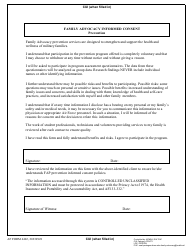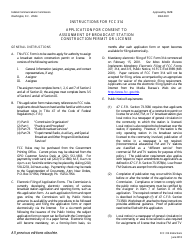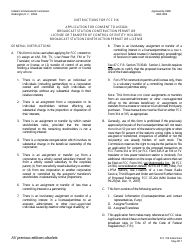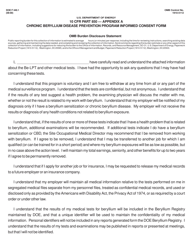Informed Consent - Iowa
Informed Consent is a legal document that was released by the Iowa Department of Corrections - a government authority operating within Iowa.
FAQ
Q: What is informed consent?
A: Informed consent is the process of giving permission for a medical procedure or treatment after being fully informed of the risks and benefits.
Q: Why is informed consent important?
A: Informed consent is important to ensure that patients have the necessary information to make informed decisions about their medical care.
Q: Who is responsible for obtaining informed consent?
A: It is the responsibility of the healthcare provider to obtain informed consent from the patient.
Q: What information should be provided during the informed consent process?
A: During the informed consent process, patients should be provided with information about the nature of the procedure or treatment, the risks and benefits, alternative options, and any potential complications.
Q: Can informed consent be withdrawn?
A: Yes, informed consent can be withdrawn by the patient at any time before or during the procedure or treatment.
Q: Are there any exceptions to the requirement for informed consent?
A: There are some exceptions to the requirement for informed consent, such as in emergency situations where obtaining consent is not possible.
Q: What are the consequences of failing to obtain informed consent?
A: Failing to obtain informed consent can result in legal and ethical consequences for healthcare providers, including potential lawsuits for medical malpractice.
Q: Is there a specific age requirement for giving informed consent?
A: The age requirement for giving informed consent can vary depending on the state and the specific procedure or treatment. In general, minors may require the consent of a parent or legal guardian.
Form Details:
- Released on July 1, 2020;
- The latest edition currently provided by the Iowa Department of Corrections;
- Ready to use and print;
- Easy to customize;
- Compatible with most PDF-viewing applications;
- Fill out the form in our online filing application.
Download a printable version of the form by clicking the link below or browse more documents and templates provided by the Iowa Department of Corrections.

















